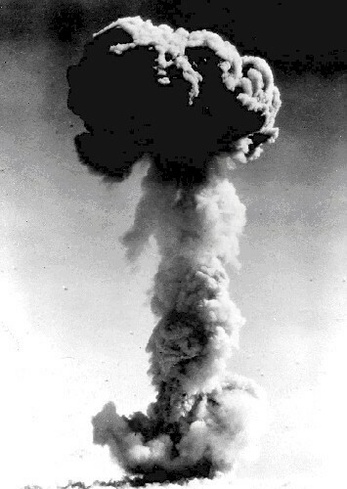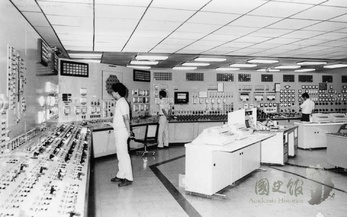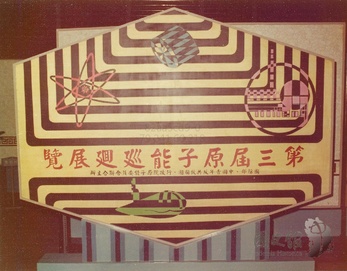Nukleare Verbindungen zwischen Taiwan, der Bundesrepublik Deutschland und der Volksrepublik China zur Zeit des Kalten Krieges (1960-1989) – Nuklearexporte zwischen Nichtverbreitung und Technologietransfer
 People’s Republic of China’s first atomic bomb test on 16 October 1964
People’s Republic of China’s first atomic bomb test on 16 October 1964(translated project title)
On 16th October 1964, the People’s Republic of China successfully tested its first nuclear warhead and following the USA, the Soviet Union, Great Britain and France became the fifth atomic power. The People’s Republic of China thus fundamentally changed the strategic map of East Asia as the atomic bomb underscored its claim to power on the international stage and also secured it a decisive advantage in its relationship to the Republic of China on Taiwan. While the primary focus of the People’s Republic of China was initially on military uses, from the 1970s onwards the deployment of nuclear technology for civilian purposes increasingly became a core interest for Beijing. This shift towards civilian uses coincided with the heyday of West German nuclear exports so that soon key Sino-German contacts emerged in this context. For its part, Taiwan had been endeavouring since the 1960s, under the pretext of setting up a civilian nuclear infrastructure, to press ahead with a secret nuclear weapons programme. Here, too, the hope was that West Germany would act as a technology partner. In fact, the island republic almost became the very first international buyer of a West German nuclear reactor in this context.
 Image from a report on the first nuclear power station in the Taiwan Shin Sheng Daily News, between 26 September 1976 and 16 July 1978
Image from a report on the first nuclear power station in the Taiwan Shin Sheng Daily News, between 26 September 1976 and 16 July 1978 Ad panel from the third travelling exhibition on atomic energy, visited by the Governor of the Province of Taiwan, Hsieh Tung-min, on 6 July 1973.
Ad panel from the third travelling exhibition on atomic energy, visited by the Governor of the Province of Taiwan, Hsieh Tung-min, on 6 July 1973.On the basis of contemporary source material, Sinologist Dr. Laura Pflug is examining the history of the transfer of nuclear technology within the triangle Republic of China (Taiwan) – West Germany – People’s Republic of China in the years 1960 to 1989. She seeks in particular to explore the range of activities by government and business players in the field of nuclear technology transfer. She wants to establish how the Asian nuclear programmes evolved in this tense setting, what role was accorded the status as a nuclear power, and how the interests of other countries (specifically West Germany) impacted on this conflict.
The trade in atomic technology was politically volatile as there was always the suspicion that it would not just be used for civilian purposes but also militarily (“dual-use”). On the back of the massive subsidies committed to this field of industry in West Germany, the main players there sought to develop international markets for corresponding export projects and in the process also negotiated with autocratic regimes. As a partner in atomic negotiations with Taiwan and with the People’s Republic of China, West German acted as an interface, such that this case is a very vivid example of the framework conditions and developments in the nuclear trading policies of the two East Asian states during the days of the Cold War. In this context, Dr Pflug concentrates on the basis of primary source materials in German and in Chinese for the first time on two East Asian nations (the People’s Republic of China and Taiwan) that together with Germany (and the two Koreas) were at the centre of the Cold War, but which owing to their location in the East Asian theatre have often been insufficiently considered in (European) investigations of the Cold War.
In order to plug this gap in the research, Dr Pflug is collecting the still unpublished source material, documenting it and systematically evaluating it. She will present her research findings at specialist conferences and summarize them in a monograph that will also serve as her habilitationsschrift.
Grant holder
Dr. Laura Pflug, Berlin
Support
The Gerda Henkel Foundation supports the project by granting a scholarship and covering the costs of travel and materials.
This project was documented in spring 2023.

